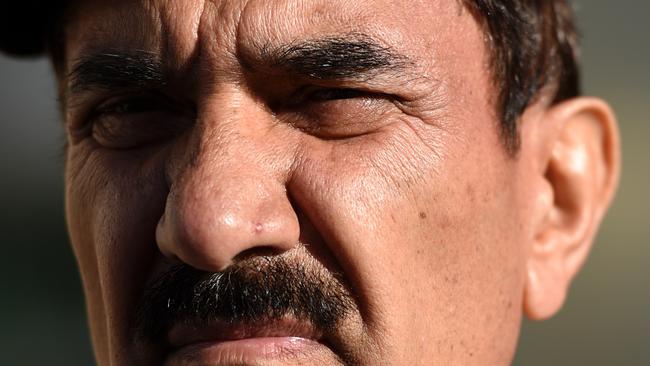Anzac Day 2016: Triple threat prompts stay calls
The head of Kabul’s main security force has urged Australia to extend its military presence there.

As a resurgent Taliban, along with al-Qa’ida and the Islamic State terror group, step up their attacks in Afghanistan, the head of Kabul’s main security force has urged Australia to extend its military presence there.
After 14½ years in the war-torn country, Australia’s role is now chiefly one of advising, assisting and mentoring the Afghan security forces with 250 army, navy and air force personnel based there.
David Kilcullen, a counter-terrorism specialist and adviser to US and Australian forces, wrote in The Weekend Australian in February that there was a serious danger of a collapse in Afghanistan, with a third of the country captured by insurgents or under pressure and Islamic State threatening to swamp the Taliban.
Dr Kilcullen said the rise of Islamic State was even more of a threat to the Taliban than to the government in Kabul or the US-led coalition. The terror group fundamentally undercut the Taliban strategy of waiting for NATO to withdraw and then seizing enough territory to force the government to negotiate, he said.
“Each time I talk to friends in Afghanistan, I see decreasing confidence on the part of government officials, urban elites, and ordinary people in the towns and villages. And the sense of concern in 2016 is worse than I’ve ever seen it,” Dr Kilcullen said.
His concerns were echoed by Peter Leahy, who commanded Australia’s army during six years of fighting in Afghanistan.
While the Australian advisers will remain in Afghanistan for at least three more years, the head of the Kabul Garrison Command, Major-General Salim Ibrahimi, said he would prefer that commitment was extended, warning that terrorism “doesn’t have a border”.
“We want them here permanently, we want them to be working with us shoulder to shoulder.”
The comments come after a blast last week signalled the deadly beginning of the Taliban’s annual spring offensive, and amid further signs of a deteriorating security situation in Afghanistan.
The attack in central Kabul last Tuesday during the morning rush hour killed at least 64 people and wounded scores more.
There were more than 11,000 civilian casualties in Afghanistan last year — the highest number since 2001. And the Taliban holds more territory than it has at any time since 2001.
Major-General Ibrahimi warned that terrorist groups such as the Taliban were not just a threat to Afghanistan but were a “threat for all the countries”.
Since February, Kabul Central Command has been under the wing of a team of 11 Australian advisers, led by Colonel Andrew McBaron. The Australians are proving effective mentors but Colonel McBaron noted that “forever is a long time”.
“I don’t think that we’ll be here forever,’’ he said. “I am very pleased with the way the Afghan security forces are progressing in their development. There’s always going to be setbacks, that’s just life. But every day we see improvements here.”
Air Vice Marshal Tim Innes, Australia’s commander of operations in the Middle East and Afghanistan, said Australian forces would remain in Afghanistan for at least three more years.
Additional reporting: Brendan Nicholson


